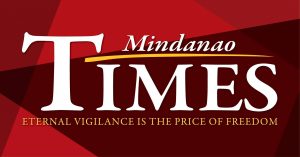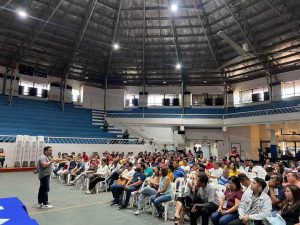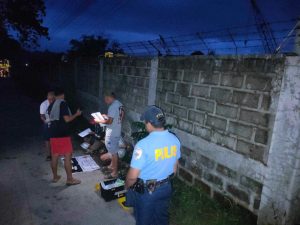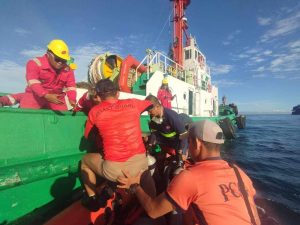 AS Davao City saw a decline in COVID-19 cases for the last two weeks, Mayor Sara Duterte issued guidelines on strengthening surveillance of influenza-like illness to control and break the chains of SARS-Cov-2 transmission that causes coronavirus disease.
AS Davao City saw a decline in COVID-19 cases for the last two weeks, Mayor Sara Duterte issued guidelines on strengthening surveillance of influenza-like illness to control and break the chains of SARS-Cov-2 transmission that causes coronavirus disease.
She issued Executive Order No. 18 or “An Order Providing for Heightened Surveillance and Response of COVID-19 Cases in Davao City” which aims to recalibrate strategies to prevent and control SARS-Cov-2 transmission in Davao City.
“Makita ninyo pababa ang atong numbers, meaning pababa ang atong cases of COVID-19. Kung ingana ang case, dapat dili ta maghulat na mosaka sya or naa napuy mga COVID-19 cases. Ang buhaton nato kinahanglan ta mag-surveillance ug influenza-like illness (As you can see our numbers are going down, meaning our cases are decreasing. If that’s the case, we should not wait again for the number of cases to increase or have new COVID cases. We need to have surveillance of influenza-like illness),” she said.
Section 1 of the E.O. 18 defined influenza-like illness (ILI) as an acute respiratory infection with a measured fever of more than or equal to 38°C and cough with onset within the last ten days.
The mayor has ordered the establishment of ILI and Swab Corner in all District Health Centers. If the swabbing is not yet available in the district, there shall be a referral of ILI cases to other swab centers for mandatory RT-PCR testing.
There will be monitoring of ILI close contacts for signs and symptoms of ILI or COVID-19 and there should be mandatory swabbing of close contacts if they develop these.
The mayor has also ordered contact tracers, Barangay Health Workers (BHWs), and Barangay Health Emergency Response Teams (BHERTs) to refer all individuals found with these symptoms for swabbing in district health centers or Sta. Ana Health Center.
Under Section 4, children and adults with ILI symptoms shall undergo RT-PCR testing and be required to undergo mandatory home quarantine while waiting for the test result.
Individuals with symptoms and have tested negative in the RT-PCR can only be released from home quarantine once they become asymptomatic, except if they need to work or do business.
Under the surveillance in offices and establishments, Mayor Sara wants the regular schedule of surveillance swabbing in high-risk areas without implementing the mandatory home quarantine after swabbing.
This shall apply but not limited to the following:
A. Business and commercial establishments (i.e. Business Process Outsourcing (BPO), Banks, Restaurants, etc.);
B. Public places (i.e. Wet markets, Supermarkets, Stores, etc.);
C. Government Offices; D. Private Offices and Agencies (i.e. Recruitment Agencies, etc.);
E. Closed facilities (i.e. Bureau of Jail Management and Penology (BJMP), Bahay Pag-asa, Home for the Aged, Orphanage, etc.); and
F. Other barangays and areas deemed high risk by the City Health Office.
She said that offices and establishments that are scheduled for surveillance swabbing should not fear, since they won’t be asked to stop working.
The only time they will stop work is when their result comes out positive because they need to isolate in a facility.
She said that offices and establishments should establish a “work from home system” arrangement so that employees who tested positive can continue to work online while in the facility.
She added COVID-19 positive patients are isolated so that transmission in the community is stopped.
Likewise, the people are encouraged to self-monitor and volunteer themselves if they experience these symptoms.
“Mas maayo na ang atoang mga resident nalang ang mag self-monitor for their symptoms. I-remember lang nila na wala may kinahanglan kahadlokan because kung naa kay COVID-19 naa tay mga facility (It is better for Dabawenyos to self-monitor for symptoms. Just remember there is nothing to fear because we have the facilities if they have COVID-19),” she further said.




